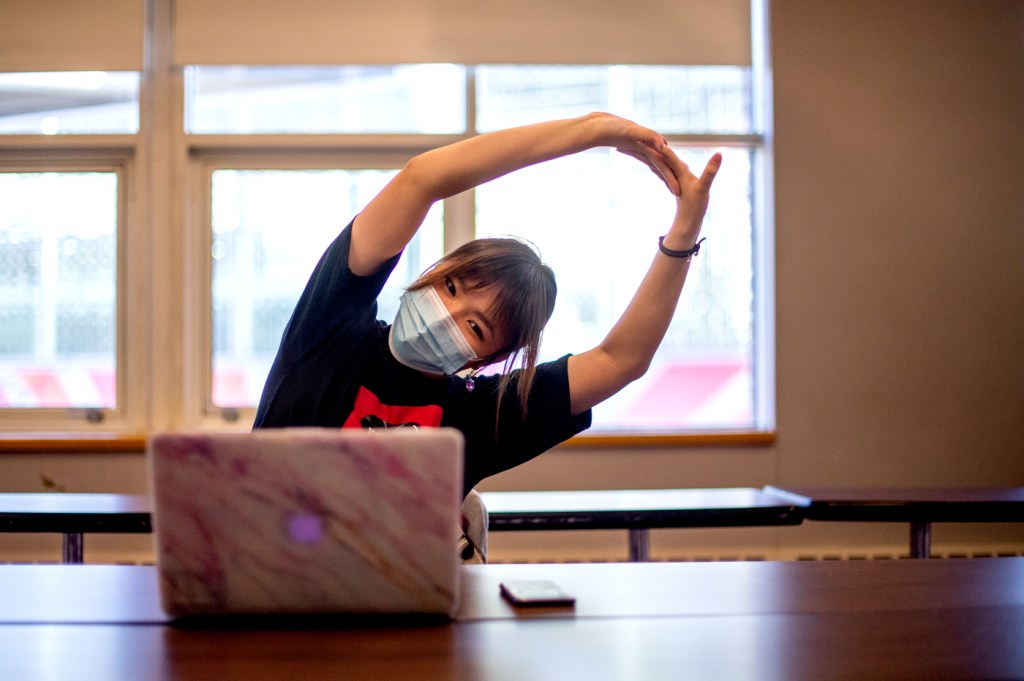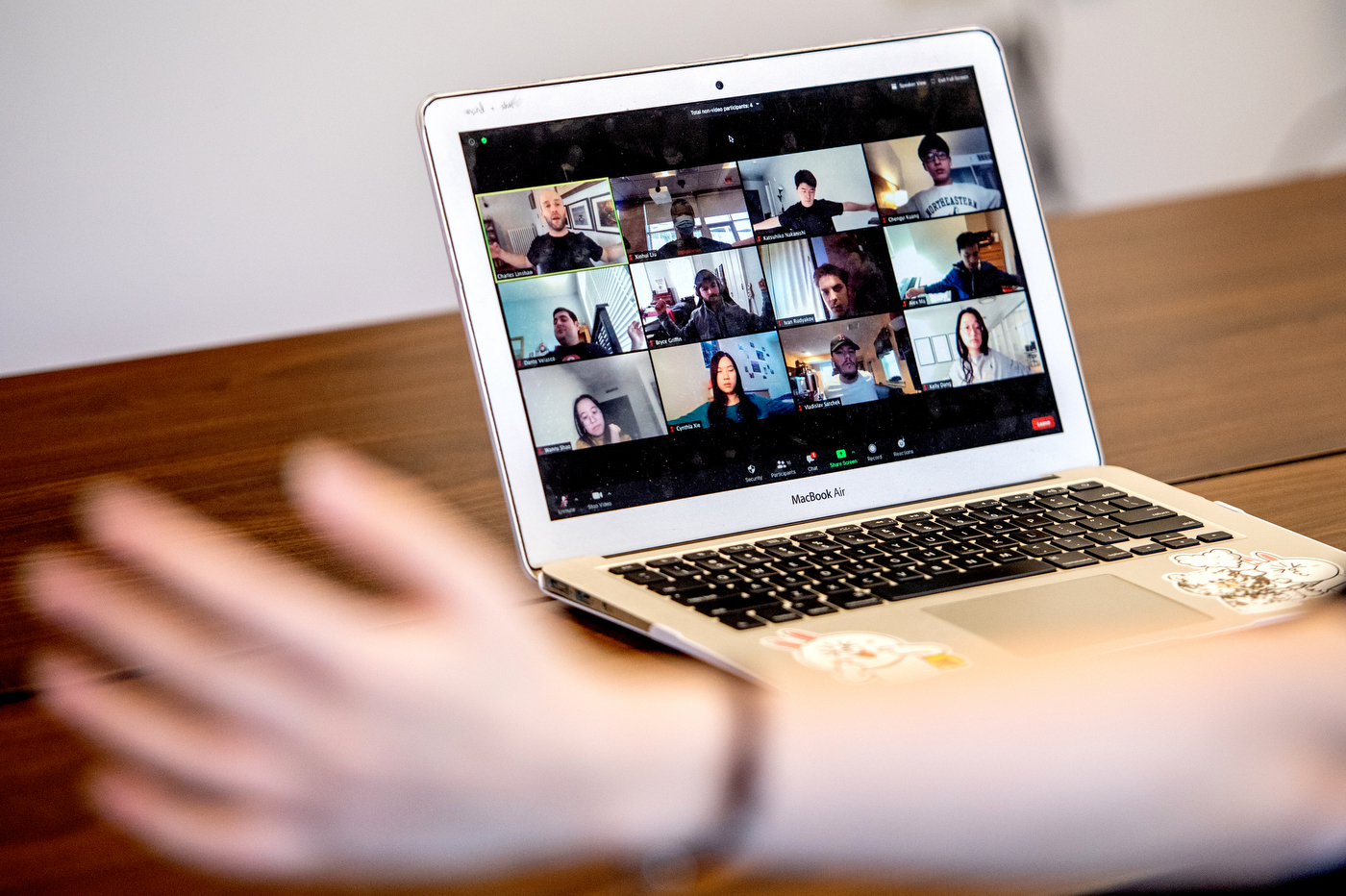On stage to on screen: Improv is still challenging these computer science majors

Even for Nathan Cunningham—a combined computer-science and cognitive-psychology major fairly confident in his public-speaking abilities—Northeastern’s required theater class involving exercises such as loud chest pounding and lip trills can be intimidating.
Cunningham says he put off taking the class until the end of his fourth year partly because his schedule didn’t accommodate it.
“Also, yeah. I thought this class was going to be really weird,” Cunningham admits.
He’s not alone. Even though the pandemic has shifted the public performance course from the classroom stage to the computer screen, acting and presenting remotely has its own challenges, says part-time drama professor Charles Linshaw.
“Public speaking is something that is so terrifying for so many people, and it is really magnified on camera,” Linshaw says. The mandatory performance-based class called “The Eloquent Presenter” has been a source of quiet dread for many computer-science majors since it began in 2016.


The course started as a way for those working in technology to “robot-proof” their jobs by highlighting the unique benefits of human collaboration, something Northeastern President Joseph E. Aoun wrote about in a 2018 book called, “Robot-proof: Higher Education in the Age of Artificial Intelligence.” One key takeaway: Students working in technology who have been trained to think critically and creatively can provide value that no robot ever could replicate.
Linshaw says he continues to focus on collaboration, even though students are now interacting from their home office or living room because of the COVID-19 pandemic. He starts with a 10-minute warmup, asking students to keep their cameras and sound on while walking around their rooms and swinging their arms.
“Now I want you to sort of shimmy and jostle your shoulders, and just pour out a bit of sound while you do it” says Linshaw, releasing a long “Ahhhhhhh” as an instructive example.
Cunningham admits the weekly warm up “gets me out of my comfort zone,” which is partially the point as students get used to speaking with confidence and authority in front of their peers.
“Students are sometimes going to feel on the spot, but I really want them to feel collaborative,” says Linshaw.
“I tried to organize the presentations I assign around different things that could happen in interviews or proposals, so that when we’re talking acting techniques we’re always grounded in practical skills,” Linshaw adds.
During one recent class, students gave brief presentations about subjects they are passionate about, identifying presentation issues they have had in the past, such as speaking too quickly or using too many filler words.
Computer-science major Eric Tang tells the class that he’s working on eye contact and pacing before he began his presentation about Boston’s subway system.
“I think it’s honestly a stereotype of the T that it’s never really on time,” says Tang, looking into the camera while speaking.
Linshaw and other students offer feedback, celebrating his improvements.
Cunningham says he’s glad he took the course, which has helped him improve his presentation skills in addition to helping to open himself up to new experiences.
“I think this class adds a lot of humanity to my education and I value the professor’s commitment to building us up rather than breaking us down and stressing us out,” says Cunningham.
Linshaw says he’s glad he’s been able to adapt the class successfully, but he looks forward to returning to class soon.
“The nature of this class is so collaborative and physical that it’s really difficult to do remotely,” Linshaw says. “When we’re in-person and students are in a room together they develop a real sense of community and that really helps with the collaborative aspect of the course.”
For media inquiries, please contact media@northeastern.edu.




